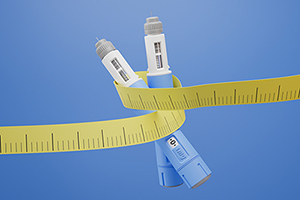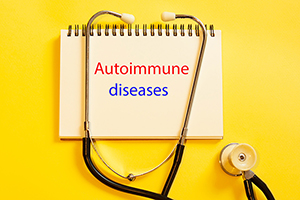



| By Dr. Ross Pelton

You might assume all probiotics are basically the same. But after reading this article by my good colleague, Dr. Ross Pelton, an internationally acknowledged expert in microbiome science and Scientific Director of Essential Formulas Inc., you’ll likely change your mind. There’s a good reason why I’ve used and recommended Dr. Ohhira’s for years!
–Dr. Ronald Hoffman
This article contains content from one of our trusted sponsors.
Nowadays, most people have heard that probiotic supplements may be helpful in maintaining health, but many of those same people don’t realize that their probiotic supplements may be lacking key factors necessary to ensure that the benefits are really seen. Tremendous scientific breakthroughs in the past two decades have vastly accelerated microbiome research, which is revealing the mystery of how probiotic bacteria positively influence human health—and, it turns out, “Postbiotics” are the KEY.
Over 90% of a healthy person’s probiotic bacteria reside in the colon. It is there that they engage in the process of fermenting non-digestible dietary fibers, resulting in the production of compounds referred to as postbiotic metabolites or simply “Postbiotics.”
Postbiotic metabolites are now understood to be some of the most important health-regulating compounds in the body. Some of their powerful benefits include:
This is why postbiotics are called The New Frontier in Microbiome Science.
How do we encourage our probiotics to produce postbiotics and support a diverse, healthy microbiome? EAT MORE FIBER-RICH FOODS. The importance of fiber cannot be underestimated! Dietary fiber is the “food or prebiotic” for your probiotic bacteria. Without fibers, probiotics cannot produce postbiotics.
The typical American diet is severely deficient in fiber. A study titled The Fiber Gap and the Disappearing Gut Microbiome: Implications for Human Nutrition reported that 90% of American children and adults DO NOT consume adequate dietary fiber.1 Low fiber diets actually promote the growth of pathogens while switching to a higher fiber diet promotes the growth of beneficial probiotics and increases the production of postbiotics.2 One study reported that shifting from a healthy high-fiber diet to the common “Western” high-sugar/high-fat/low-fiber diet caused a significant negative shift in the composition of the microbiome within 24 hours!3
In addition to fiber in the diet, another critical aspect of increasing the production of postbiotics is Microbiome Diversity which refers to having many different strains of probiotic bacteria present in an individual person’s microbiome. Greater gut microbiome bacterial diversity is associated with better health.4 However, the ONLY WAY to create and maintain greater microbiome diversity is to consume a wide diversity of different kinds of fiber-rich foods – especially fermented whole foods – which support and promote the growth of different strains of beneficial bacteria.
So, in analyzing the strength of various probiotics formulas, look for postbiotic-rich and naturally fermented formulations. Recent scientific understanding of the importance of postbiotics has propelled some companies to add one or several postbiotics to their probiotics for marketing value. But this is not the same as getting a wide range of postbiotics that are created when probiotic bacteria ferment a diverse range of dietary fibers naturally.
Don’t we need supplements with billions upon billions of CFU’s (Colony Forming Units)? An interesting—and still divisive—disagreement in the probiotic community is whether the presence of postbiotics in formulas is more important than the CFU count of viable bacteria per dose. The advanced scientific community is not swayed by the mistaken notion that 30, 50, or 200 billion CFU’s are better for your health. More is not necessarily better. Science has shown that it is actually the postbiotic component that offers widely superior probiotic benefits. Too many CFU’s can trigger an imbalance in the microbiome and cause the immune system to initiate an alarm reaction.5
As Scientific Director to one of the largest worldwide probiotic companies, I have studied probiotic health and wellness for over 20 years. My favorite? The postbiotic-rich Dr. Ohhira’s Probiotics.
Dr. Ohhira’s Probiotics® is a unique fermented food probiotic that is similar to the fermentation process in the human gastrointestinal tract. To produce Dr. Ohhira’s Probiotics, a wide variety of fiber-rich foods are mixed with 12 starter strains of probiotic bacteria in large 80-gallon fermentation vats. After a 3-year fermentation process, the final product contains probiotics, prebiotics and over 500 postbiotics. Yes, 500 POSTBIOTICS.Dr. Ohhira’s Probiotics directly delivers postbiotic metabolites, which immediately begin to improve gastrointestinal and health.
This is The Dr. Ohhira’s Advantage.
Dr. Ross Pelton
The Natural Pharmacist
Scientific Director of Essential Formulas Incorporated
REFERENCES:
1 Clemens R. et al. Filling America’s Fiber Intake Gap: Summary of a Roundtable to Probe Realistic Solutions with a Focus on Grain-Based Foods. J Nutr. 2012 July; 142(7): 1390S-1401S.
2 Bishehsari F. Dietary Fiber Treatment Corrects the Composition of Gut Microbiota, Promotes SCFA Production, and Suppresses Colon Carcinogenesis. Genes. Feb. 16, 2018;9(2):102.
3 Turnbaugh PJ. The Effect of Diet on the Human Gut Microbiome: A Metagenomic Analysis in Humanized Gnotobiotic Mice. Sci Transl Med. 2009 Nov 11;1(6):6ra14.
4 Larsen, OFA. The mechanistic link between health and gut microbiota diversity. Sci. Rep. Nov 2018;8(1):2183. doi: 10.1038/s41598-018-20141-6.
5 Wen K. High dose and low dose Lactobacilli acidophilus exerted differential immune modulating effects on T cell immune responses induced by an oral human rotavirus vaccine in gnotobiotic pigs. Vaccine. Feb. 1, 2012;30(6):1198-1207.
Though we think of declining estrogen as the hallmark of menopause, it's actually common for…

Up to 12 percent of Americans have ulcers at some point in life. Peptic ulcers…
Gallbladder disease is a modern illness. An estimated 20 million Americans have gallbladder disease. The…

New, more powerful weight loss drugs: Drugs like Wegovy, Rybelsus, Ozempic and Mounjaro/Zepbound are revolutionizing…

According to the Lancet, autoimmune disease affects one in ten people globally and it’s now…

This past week we were regaled with headlines like: High levels of niacin may increase…

Leyla Weighs In: The Erosion of Trust in Nutritional Research

Our virtual voicemail is open 24/7, so there's no need to wait to submit your questions for Dr. Hoffman. Leave a message, and you may hear your question featured on the Intelligent Medicine radio program!